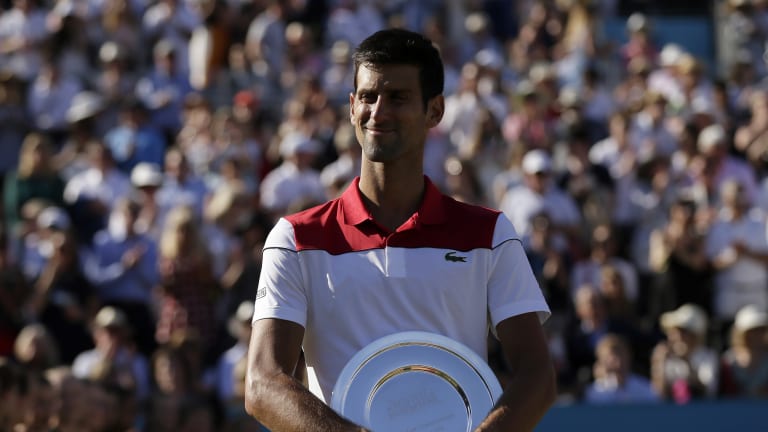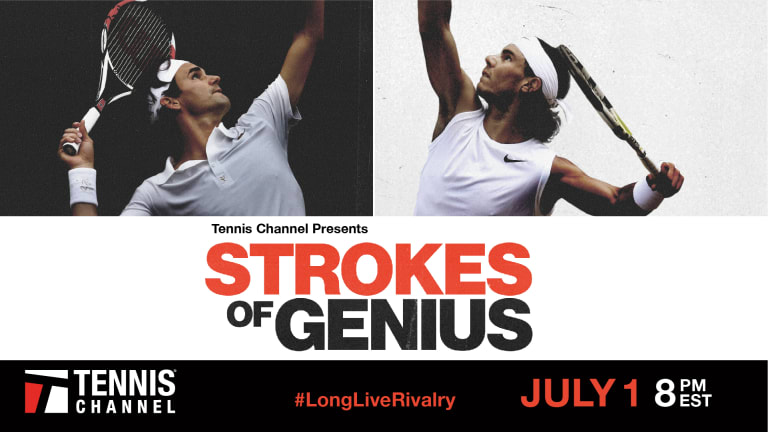Loyal followers of the Serbian hoped he would be revitalized, ready to make his presence known in a substantial way. But that was not the case. His elbow was still not right. Serving with an abbreviated motion clearly messed with his mind and made him a lesser player. On reputation and a refreshed psyche, Djokovic reached the round of 16, but his discombobulated serve was not nearly good enough to get him past Hyeon Chung. Djokovic fell in straight sets, and knew full well that he was not ready for a sustained run with his elbow remaining problematic.
Before he returned, Djokovic had a procedure on his elbow, but he was still not himself. He did not win a match at either Indian Wells or Miami, a pair of tournaments he had dominated over the years. Five times he had been the victor at Indian Wells, and on six occasions he had ruled in Miami, but this time around he was shockingly beneath his highest standards. This man who has been such an outstanding hard-court player was ushered out of Indian Wells by Taro Daniel and was beaten in Miami by Benoit Paire.
It was troubling to observe the 12-time major champion in the doldrums. He seemed disoriented, baffled by his own ineptitude, a player who paled in comparison to what he had once been.
And yet, as humiliated as he may have been, as much as he may have been disconcerted about his inability to make amends, Djokovic refused to surrender his ambitions. Once he got back out onto the red clay in the spring, Djokovic began to display an improved brand of tennis. In Monte Carlo, he got to the round of 16 with an impressive win over Borna Coric, losing in three sets to Thiem. He stumbled in his next two tournaments at Barcelona and Madrid, winning only one match combined in the two events, losing three-set clashes with Martin Klizan and Kyle Edmund. But he then seemed to rediscover his timing in reaching the semifinals of Rome with a sparkling win over Kei Nishikori, bowing out there to Rafael Nadal in a very well-played contest.
The strides he made in Rome carried Djokovic into Paris on a roll, and his quarterfinal run was not entirely a disappointment. Had he ousted Cecchinato, Djokovic would have collided with Thiem for the third year in a row at Roland Garros, and Djokovic might well have earned a third French Open final-round appointment against Nadal. It was not to be, but once he moved past his post-match desolation, Djokovic settled in on the British grass and had a productive week.
So how are we to assess Novak Djokovic now as he heads into the tournament that means more than any other in tennis? Can he significantly be a factor this time around after all of his struggles?
I believe he definitely can. Between 2011 and 2015, he secured the singles title at Wimbledon three times. He is the ultimate all-surface player when he is healthy and fully confident. Djokovic’s final-round appearance at Queen’s will serve him well at the All England Club. His game is largely back. The way he defended last week was stupendous. His return is much closer to what it once was. His footwork and mobility are looking good.
Above all else, the most underrated part of his game is functioning beautifully again. His service motion is once again smooth as silk. He is finding the corners regularly in both the deuce and ad courts. The location could not be much better. His astonishing speed, backcourt consistency, craftiness and match-playing prowess are back in order. At Wimbledon, however, the serve will determine more than anything else whether or not Djokovic gets to the latter stages of the tournament.
In the last analysis, Djokovic is going to make life uncomfortable for a lot of players on the lawns. Roger Federer is the man to beat; of that we can be certain. Rafael Nadal—who took the title twice and reached three other finals between 2006 and 2011—is long overdue to make a serious bid for the crown this year. Cilic demonstrated last year in reaching the final that he has the tools to succeed on Centre Court. Both Juan Martin del Potro and Sascha Zverev can be strong contenders, although Zverev looks beat up at the moment.
But, in my view, Djokovic is right up there near the top of the pack as a candidate to prevail on the Centre Court. He is increasingly close to revisiting the top of his talent. Some time over the next couple of months, no matter what it takes, as long as he remains free of pain, Djokovic will get back to that lofty destination in the hierarchy of tennis. He will settle for nothing less than that.

